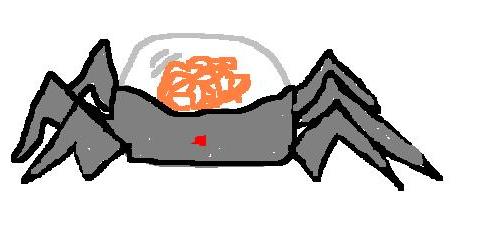A vision for the “small web”, small software, and small architectures.
I too love the idea of the “small web”, I’ve pined for it these last few years as I look back on the web of my childhood where there were many interesting and quirky sites compared to now where everything feels consolidated and interest for non-techies or semi-techies to have their own website is all but gone it seems.
I’dd like to share a website I came across a while back. I can’t remember the URL cause sadly I didn’t store it.
The site was a personal website of a photographer. It has a very unorthodox design and consisted of a bunch of repeating sections, each for a topic or category of content.
Each of these sections were a list of cards, scrollable in the horizontal direction. Each section has individual scrolling. The cards were either links to articles or high-res images.
The page loaded atrociously slow, and a quick look at the inspector showed why, we loaded about 300MB of images, quite the amount of code and it was clear that the entire site was made by a novice programmer, which made me immediately load all of the images that I could ever scroll into view. Quite the opposite of lean website technically, but definitely a small web website in essence and presentation. I think “small web” websites are small in scope and very personal. But whether or not they are small in size or features is less of a concern to me, I got spare cycles to burn anyways.
I think the web has for a long time lacked identity and personal connection, I hope that the renewed interest in federation and the small web will let more people express themselves more freely.
Nah. I grew up in the small Web. That’s how Google got powerful, by having a better index than anybody else, and exposing their cache so that even if something that ranked highly went down, you could still access it. The small Web doesn’t work at any scale, because that’s not how people work. Myspace, Friendster, and Facebook started smallish. One remains and it’s huge. Do you remember Foursquare? How they competed with Yelp, Facebook, and Google, until all three just did their smallish product, but better?
Personal home pages are sweet and nostalgic. But they need to be indexed somewhere or they’re only as big as the network of people who the page creator can give their card to.
We need to embrace the big Web and start steering it. Running away won’t help, and it doesn’t solve the problems that the big sites solved.
You’re operating from a base assumption that others may not share: that you need your community to be bigger than the people you can hand your business card to.
Come to think of it, that’s probably true. Then again, I don’t like handing out business cards. I respect that opinion, but I like larger communities.
Personal home pages are sweet and nostalgic. But they need to be indexed somewhere or they’re only as big as the network of people who the page creator can give their card to.
There used to be things called webrings. If lots of self-hosted independent sites are to become a thing again, it might be worth resurrecting and improving that sort of technology.
You can see hints of Fediverse-like thinking in them even though it’s (low)tech from long before.
I remember webrings (there still are a few alive and growing in niche communities, btw). They stopped being significant because they were inefficient in UX for browsing and content-curation, which search engines and indices did very well.





